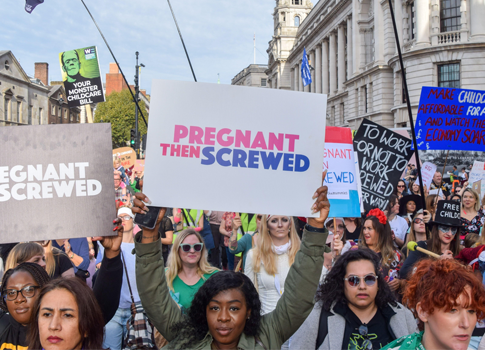Major changes are on the horizon for social media advertisers, arising from the potential click of a single button in a Facebook user’s privacy settings: “Clear History”.
In May 2018, Facebook CEO, Mark Zuckerberg, first announced the company’s plans to build a feature that will enable users to “see the websites and apps that send us information when you use them, delete this information from your account, and turn off our ability to store it associated with your account going forward”[footnote: outlined in this blog by Chief Privacy Officer, Erin Egan].
This feature is set to be Facebook’s boldest move yet in a push towards greater transparency with regards to how user data is collected and shared with third parties for advertising. Following sharp criticism of the social media behemoth in 2018, largely fuelled by the Cambridge Analytica scandal, Zuckerberg outlined his plan for a privacy-focused Facebook, with the roll-out of several new features to this end.
In May 2019, Facebook announced that Clear History would be arriving “in the coming months”.
What does this involve exactly?
Much in the way that clearing cookies will clear all browsing history, users are given the controls to disconnect their off-Facebook activity from their profile. Whilst this data will still exist, being anonymised renders it unavailable for ad targeting.
Reporting and analytics will remain unchanged but targeting options powered by Facebook’s business tools, including the Facebook pixel, SDK, and API can no longer be used to reach someone with ads. “This includes Custom Audiences built from visitors to websites or apps,” Facebook have confirmed.
What are the implications for advertisers?
Facebook has made efforts to reassure advertisers that such changes shouldn’t deter them from spending on the platform, stating that “advertising and protecting people’s information are not at odds”.
Understandably, the inevitable loss of data which will result has led to concerns over increased ROAS – particularly, for small businesses or advertisers in niche verticals who rely more on custom audience segments.
However, it is debatable to what extent the feature will have much impact.
It may well be that only a small pool of digitally-savvy users are concerned enough to make use of it.
Furthermore, clearing history will log the user out of every app currently connected with their Facebook login. The inconvenience of re-signing into apps may deter mass use of the tool. Additionally, many users prefer having a personalised ad experience rather than the randomised ads that they would see as a result of anonymising their data.
Arguably, even if use is widespread, resetting the user’s data can potentially build a more accurate and up-to-date picture of a user, which can be extremely beneficial for targeting.
Lastly, whilst access to private data is declining, access to large-scale public data has never been more abundant. Advertisers can use aggregated data from online conversations on social networks as well as other sources of public consumer data to create strategic, data-driven strategies to connect with the right users.
Three key things to note:
- Monitor and adapt: When Clear History takes effect, it is important to keep a close eye on campaigns before, and after. Identifying the shift in user behaviour can illuminate which campaigns are the most efficient.
- Be prepared for change: In the post-GDPR environment, Clear History serves a further reminder that major industry upheaval is on the cards. Furthermore, the behavioural data acquired by Facebook or their counterpart should not be relied upon as a single source of information to guide targeting.
3. Take a holistic approach to targeting: Profiling users by overlaying data and insight from GDPR-compliant providers with the data attributed by channel, can build up a more accurate picture of the user behind the screen. In order to truly understand their audiences, advertisers must apply more creative and intuitive targeting strategies which make use of cross-channel data points.






